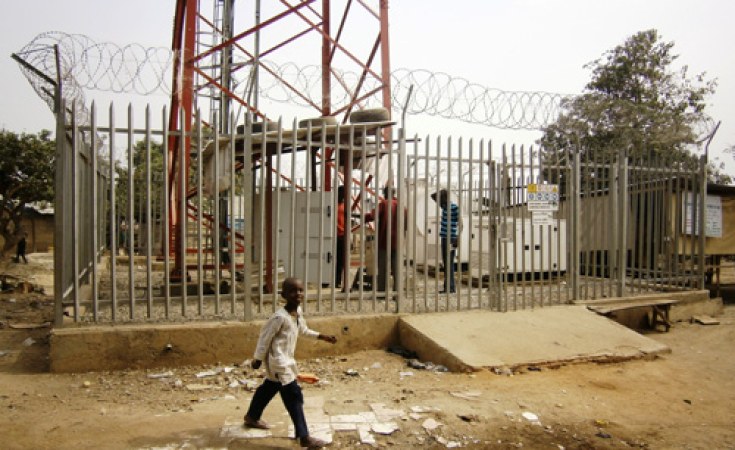Every day, Kenya's capital Nairobi goes four hours without power. That's the price of a growing economy bumping against creaky infrastructure struggling to keep up. The blackouts are big problem for people like Bernard Njoroge, whose company Adrian Group keeps cellphone towers running for Kenya's largest telecom, Safaricom. Njoroge used to rely on noisy power generators belching diesel fumes into Kenya's hot air, and lead-acid batteries that could barely bridge the outage gap.
Not anymore. Njoroge just purchased 200 next-generation Durathon batteries made by GE. The batteries can last for as long as nine hours, a plenty of time to cover a power outage and recharge from the grid. "For a long time, I've been looking for an innovation like Durathon," Njoroge says. "I have no need to run the generators, no more trouble with noise. With the batteries we can provide 99 percent availability of the network."
Telecom operators in Africa and elsewhere will soon start powering cell phone towers with GE's next-generation Durathon batteries. The low-maintenance batteries last twice as long as ordinary lead-acid batteries and can work for 20 years. They are also non-toxic and fully recyclable.
GE introduced Durathon, the flagship product of a new business unit called GE Energy Storage, only two months ago. Njoroge's Adrian Group is one of 10 new customers from Africa, Asia, and the U.S. who just placed orders for batteries valued at $63 million. That's on top of an order placed earlier in the summer by South Africa's Megatron Federal.
Durathon is using innovative sodium chemistry to generate charge. The batteries, which contain more than 30 patents, can recharge 3,500 times, ten times more often than ordinary batteries, and last for two decades. They work in temperatures from minus 4 degrees Fahrenheit to 140-degree heat. They are non-toxic, fully recyclable, and take half the amount of space as lead-acid batteries.
GE is spending $170 million on a brand new Durathon plant the size of four football fields in Schenectady, New York. At full capacity, the plant will employ 450 workers. GE engineer Glen Merfeld was one of the lead engineers involved in developing Durathon. "We had to bring together expertise in materials science, ceramics, metallurgy, and manufacturing technology," Merfeld says. "But there was almost nothing we couldn't work through. I think that's part of the story, why it's so exciting that we have this incredibly cool new factory."
Njoroge's Adrian Group supports telecoms in five East African countries, including Uganda, Rwanda, and Burundi. "They've caught the word of what we are doing," he says. "There's going to be a lot of traffic, people coming to see the application in Nairobi. This product will be a fast seller in the region."


